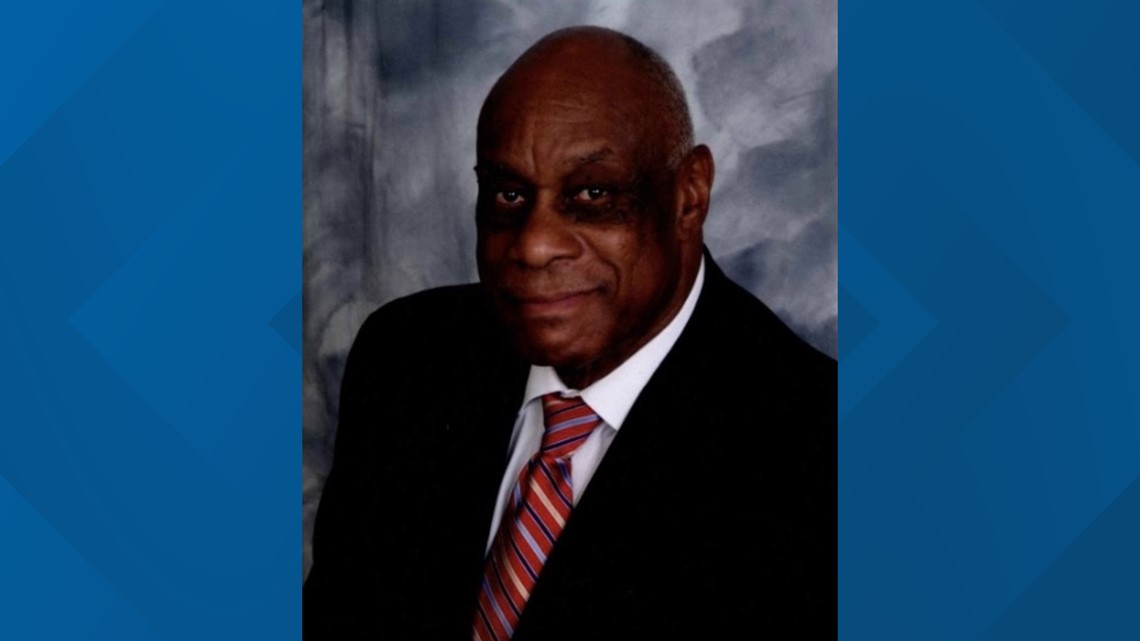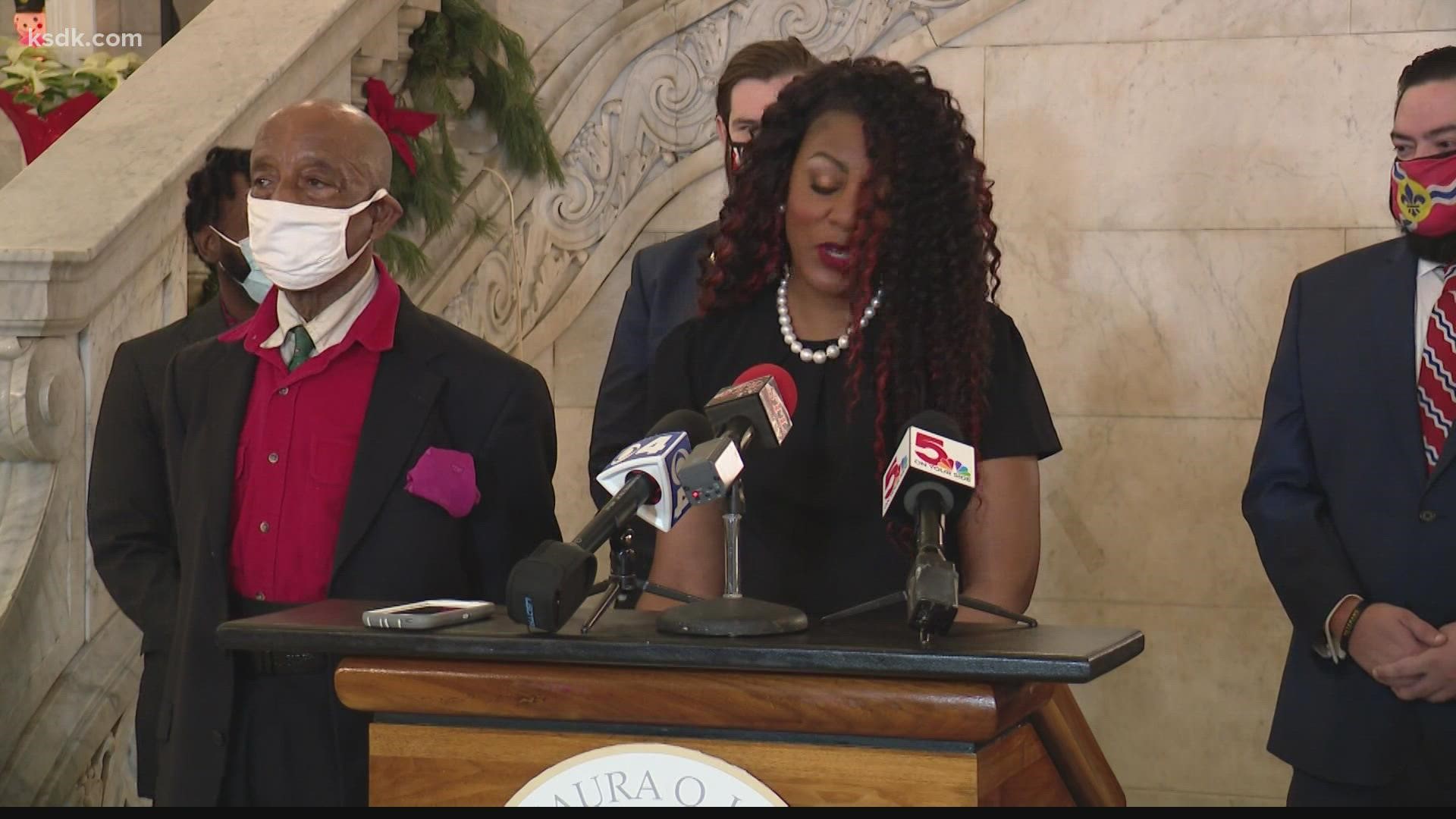Byers' Beat is a weekly column written by the I-Team's Christine Byers, who has covered public safety in St. Louis for 15 years. It is intended to offer context and analysis to the week's biggest crime stories and public safety issues.
ST. LOUIS — What may seem on its surface to be a small vote taken by an equally small committee could cause a seismic shift in the balance of power for the mayor’s office in St. Louis.
“Anyone who lives in the City of St. Louis or visits the City of St. Louis and takes advantages of the city’s services and emergency services should be concerned about this,” said Emily Perez, attorney for the Firefighters Union Local 73.
It has come at a time when the police union is clashing with Mayor Tishaura Jones' administration, which believes in alternative policing strategies.
Her administration has pledged to consolidate the city’s dispatch operations under one roof to combat unacceptable wait times for 911 callers – a move the firefighter’s union says cannot happen without its input.
She is searching for a new police chief.
Union contracts for public safety workers are looming.
The city's personnel director has had the biggest role in handling all of these issues, as the department handles all hiring, firing, promotional procedures, pay and contract negotiations for the city.
The mayor appoints the permanent director, but, once the appointment is made, the mayor – or anyone else – can’t fire them.
Only if that person breaks the law or neglects their duty – both very high bars to prove – can they be removed from their seat. That way, that person isn’t beholden to the mayor who put them there.
Arguably, that makes the city’s director of personnel the most powerful position in city government.
He or she answers to no one.
Retired Personnel Director Rick Frank once told me the city adopted the system to keep any political influence from the mayor’s office out of the city’s hiring and firing decisions and contract negotiations with unions.
But, at a recent meeting of the city's Civil Service Commission, that changed.
It’s a three-member committee. Members are appointed by the mayor. Their main responsibility is hearing appeals city employees file to disciplinary decisions the personnel director makes.
Currently, each of the three members was appointed by three separate mayors, Francis Slay, Lyda Krewson and Tishaura Jones.
On Friday, Feb. 4, the committee met at 4 p.m. for the sole purpose of changing two civil service rules pertaining to the appointment of an interim personnel director.
The charter requires an interim personnel director be appointed from within the personnel division until the mayor can appoint a permanent director.
Frank retired last year due to medical reasons. Sylvia Donaldson, who has worked for the Personnel Division since 1985, became the interim director when Frank stepped down.
During that Feb. 4 meeting, the Civil Service Commission changed the rule, allowing Jones to appoint an interim director of her choosing without any minimum qualifications -- and, who can be removed at any point.
Donaldson was in that virtual meeting where the commission stripped her of her interim title.
To confuse things a little more, Chairwoman Bettye Battle-Turner complimented Donaldson.
"She's doing a fantastic job," Battle-Turner said.
The big three
The move prompted confusion and fighting words from leaders of the city’s big three unions: the carpenters, firefighters and police. They threatened to sue the city should the rule change take effect, and questioned why Donaldson had to be removed as the interim director.
“I will sum up my testimony in three words, ‘Don’t do it,’” said Jeff Roorda, business manager for the St. Louis Police Officers Association. “I know the urge to comply with the mayor's desires is strong and the mayor wishes to have expanded control over the department of personnel on the civil service commission, but that's not a good thing."
Roorda said he is not criticizing Jones, but wants to keep anyone who becomes mayor from creating a "patronage system" that goes against the wishes of the voters.
A former personnel department employee, Erik Bates, also attended the virtual meeting to offer his two cents.
“The idea behind having an employee of the department of personnel serve as interim director is so you can keep the lights on and keep things running with institutional knowledge while you search for a full-time director who can bring in the experience necessary,” he said.
Bates said the appointment should not be political.
“I feel we're in danger of dismantling the civil service system by having the very head of that department be a political employee,” Bates said.
Supporting change
But not everyone shared those views, exposing fault lines among the ranks.
Namely, the Ethical Society of Police and the Firefighters' Institute for Racial Equality, or F.I.R.E. Both are membership organizations that represent primarily Black police officers and firefighters.
Leaders from both organizations voiced their support for giving the mayor the power to appoint an interim personnel director.
“We are in agreeance to there being a change in this selection process because we've seen the effects of past directors and things that have been questionable so we support the commission in changing this ruling,” said St. Louis Police Sgt. Donnell Walters, president of the Ethical Society of Police.
He believes the major unions benefit from the current system that caters to them while excluding others. Walters also said the personnel division is antiquated in many ways, including the job application process, and there’s no way to move the personnel division to streamline any processes or hold the personnel director accountable.
“Essentially, the personnel director is the king of the city,” he said. "The only way you're going to leave is if you decide I'm tired and I'm going to resign."
In the meeting, FIRE Chairman Percy Green said he took issue with Perez’s remark that the firefighter’s union – the only recognized bargaining unit for firefighters – represents all firefighters, EMS, EMT, paramedics and dispatchers.
“We represent 98-99% of Black firefighters… And secondly, we're in support of said changes to the Civil Service rules in question,” Green said.
Civil Service Commission
A spokesman for Jones said the mayor would not comment on the rule change because it was a decision by the Civil Service Commission.
Commission members held their ground, insisting the rule change came about entirely independent of the mayor’s wishes.
Longest-running Civil Service Commission member Steven Barney injected some historical context into the discussion.
“I've served under three mayors and I can tell you every one of them has faced the same issue of a very insulated personnel function,” he said. “The folks in that area like that.
"It's not surprising but it's not typical of an organization."
He said the rules giving the personnel director so much power came about in the 1940s "to deal with some very extreme partisan kinds of things that went on at the government level."
"We're decades beyond that and there are lots of things in place that will not change how a police or a fire captain is selected in a competitive process or change the way that pay and promotions are dealt with," Barney said.
Civil Service Commission Chairwoman Battle-Turner also defended the commission’s independence from Room 200 – the number on the door to the mayor’s office in City Hall.
“You need to know that each of us on this board, we have a sense of our own independence,” she said. “We kind of look at things, we evaluate things, we sort of look at things, we see where they're coming from and I'm a very independent person."
She said so are her counterparts on the board, Barney and Dean Kpere-Daibo.
“We are independent, we're not going to let anyone just shove something down on us if we don't think it's going to be the best interest of the city,” she said.
And, right now, Battle-Turner believes allowing the mayor to appoint an interim director is what’s best for the city.
“We are without a personnel director at a time that is very important to have a personnel director. The way the rules are is going to take a while to get a personnel director. What we would like to do now is that because our circumstances, which are not like normal circumstances, we want to give the mayor some opportunity or any mayor who finds himself in this situation where there's an abrupt leaving of a personnel director, give them some leeway in order to make some choices and present them to us so that we can go ahead and get somebody in place while we go through the process of searching for a permanent personnel director,” she said.
She thanked Room 200 for “expediting this meeting today.”
On Wednesday, Jones named former Laclede Gas senior vice-president John Moten Jr. as the city's interim personnel director.


Not surprisingly, the unions were not impressed.
"He has a degree in chemistry," said Demetris Alfred, president of the Firefighters Union Local 73. "I don’t know if that qualifies him to be a director of personnel."
Walters said the city will benefit from having someone in the position with a "fresh perspective."
Jones tweeted a picture of Moten being sworn in Monday with the words: "This morning, I swore in respected business leader John Moten as interim Director of Personnel. With his experience in human resources and community relations, John will build a strong foundation for the department's next permanent director."
Moten is expected to be in place for six months, but can be removed at any point. Union leaders also fear the commission can extend his term.
A lot can happen in six months. A revamped police chief search, and selection, could get underway. Dispatch centers could consolidate. Contracts can be negotiated.
So, whether this becomes a seismic shift in power remains to be seen.
They only take seconds to happen — and they're very hard to predict, according to the U.S. Geological Survey.

